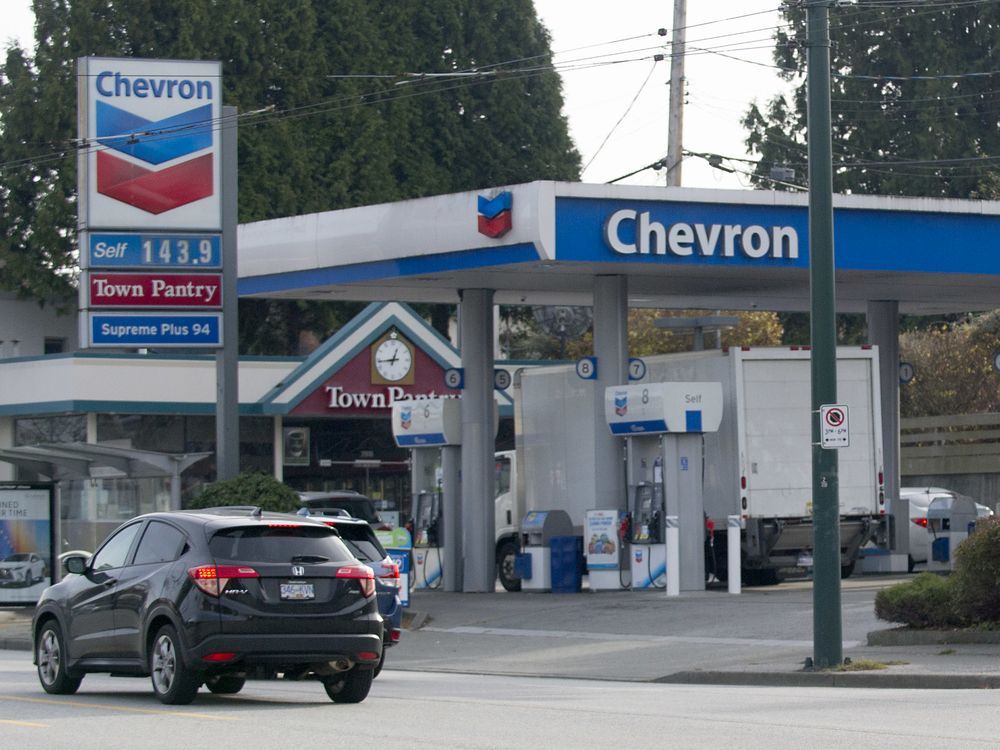B.C. move to force transparency on gas supply unlikely to lower prices

Credit to Author: Rob Shaw| Date: Thu, 07 Nov 2019 23:00:55 +0000
VICTORIA — The B.C. government plan to force companies to hand over internal data on gas prices will do little to lower the cost at the pump for customers, says a leading expert.
B.C. has very little competition in the fuels business compared to the rest of Canada, said Werner Antweiler, a professor at the University of B.C.’s Sauder School of Business who studies gas pricing.
“We are ‘oligarchical’ market and that’s just not going to go away and that means the prices are always going to be higher than elsewhere in the country,” he said. “That’s not going to change no matter how much wishful thinking and legislation we put in place.
“The proposal to make it more transparent is not going to do a whole lot of good and certainly not bring prices down. It can make things more transparent and help researchers like me help figure out what is driving the prices.”
B.C. is preparing legislation that will require companies to turn over to provincial regulators sensitive internal data on oil and gas supply, in an attempt to provide more transparency on how gas prices are set and the reason they can sometimes fluctuate so wildly without notice.
The bill, which may be introduced this fall or next spring, is government’s attempt to respond to public outrage over gas prices that reached above $1.70 a litre earlier this year.
Although many of the sudden and unexplained price fluctuations increase the cost of gasoline, there was also as much as a 10 cents a litre drop in the price of gas in Metro Vancouver in the past day, with more to come, according to some analysts.
Gas prices in Vancouver were as high as almost $1.57 a litre last month, more recently in November hovered as high as $1.47 a litre and dropped to as low as $1.359 cents a litre Thursday afternoon. Analyst Dan McTeague wrote on social media that prices could drop another five cents a litre, as a supply crunch lessens.
The uncertainty is likely to worsen with news that Parkland Fuel Corp.’s Burnaby refinery — the sole local supplier of motor fuel in the Lower Mainland — is scheduled for an eight-week maintenance shutdown early next year.
The 55,000-barrel-a-day Burnaby refinery is putting fuel in storage to be drawn upon during the shutdown but that won’t be enough to last for the duration, said Dirk Lever, vice-president for refining, on a conference call to discuss Parkland’s third-quarter results.
“We have a fair amount of planning to do dealing with other refineries in order to source supply as we’re down,” he said.
But the real problem, identified in an August report by the B.C. Utilities Commission, is that a small number of companies control most of B.C.’s gas supply and retail stores, said Antweiler. That, combined with B.C.’s lack of refining capacity and its inability to increase gasoline shipments through the existing Trans Mountain pipeline, simply mean there’s little the province can do, he said.
“People have to realize fuel costs are not going to go materially down due to some government action and certainly not by lowering taxes because we’ll have to make up the shortfall with something else,” said Antweiler. “There’s really nothing in the tool box that governments at the provincial and federal level can do to lower gas prices in the short term. In the long term the only option is more fuel-efficient vehicles and more choices for customers.
“It’s the unfortunate truth, but politicians are not keen on saying that.”
The Canadian Fuels Association, which represents many of the industry’s main companies, said in a statement that would not comment on “speculation” legislation, and refused to address whether companies intend to comply or challenge B.C.’s plan to force information disclosure.
The association noted the B.C. Utilities Commission report “did highlight a number of factors that contribute to B.C. wholesale and retail fuel price fluctuations.”
That report also pointed to an unexplained 13 cent a litre price difference in B.C., which the NDP government seized upon as evidence that customers are getting gouged by retailers. The oil and gas companies have responded to the price difference, and an additional report by the commission is expected Nov. 9.
Several other oil and gas companies contacted by Postmedia News on Thursday did not return requests for comment.
— with a file from The Canadian Press